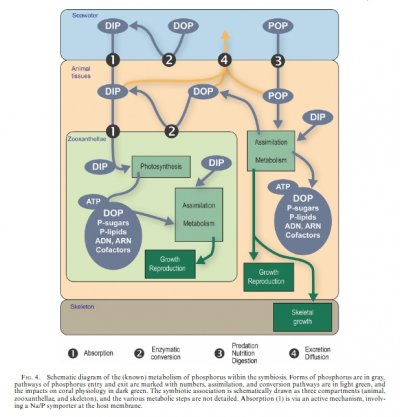I see this statement often in threads about nuisance algae and low phosphate test results;
" The algae is consuming your phosphates and you are getting a false reading."
I get how that might happen, but how would you get a correct reading, or confirm that is indeed the case and high phosphate is fueling algae growth?
If the statement is true and you have algae, good or bad, in any significant amount, wouldn't a phosphate test be useless?
Just wondering is all.
" The algae is consuming your phosphates and you are getting a false reading."
I get how that might happen, but how would you get a correct reading, or confirm that is indeed the case and high phosphate is fueling algae growth?
If the statement is true and you have algae, good or bad, in any significant amount, wouldn't a phosphate test be useless?
Just wondering is all.

















